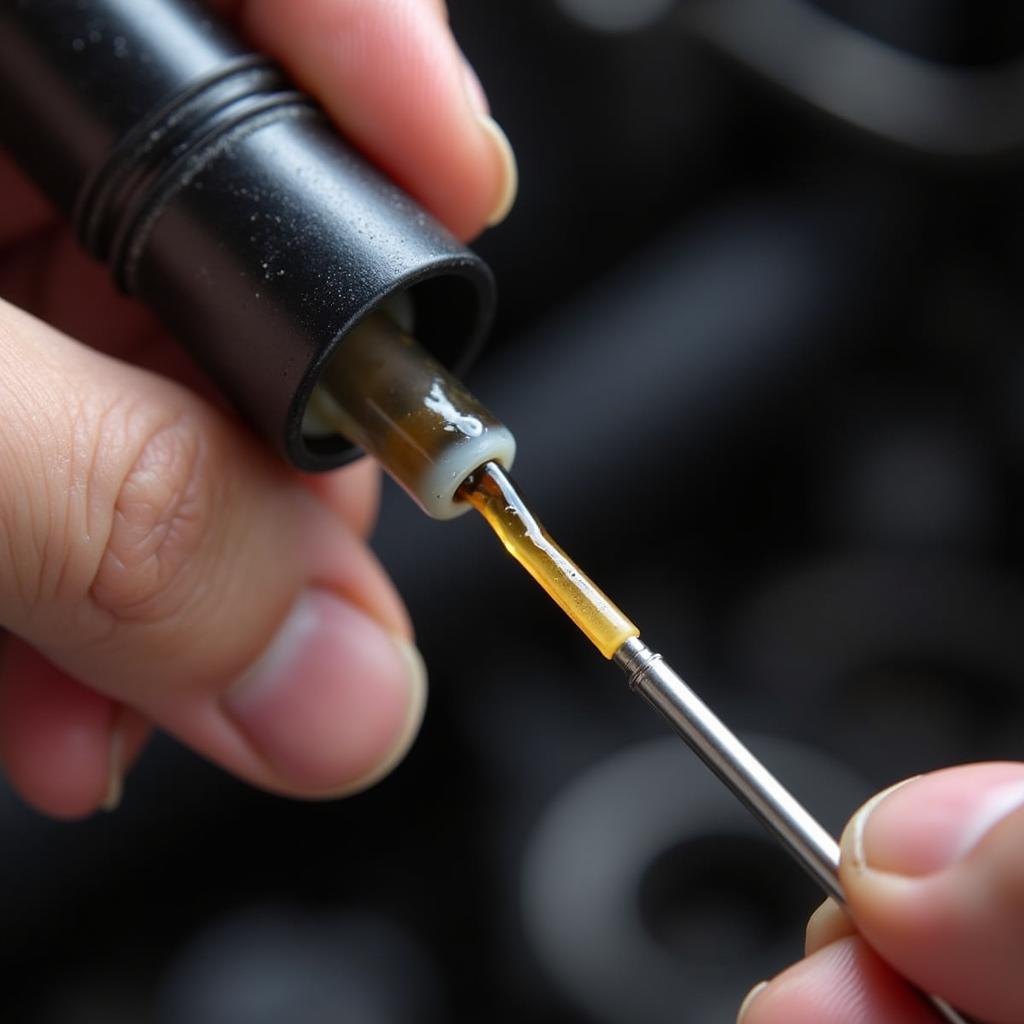Transmission problems can be a real headache, impacting your car’s performance and safety. Knowing How To Detect Car Transmission Problems early can save you from costly repairs down the line. This article will guide you through the common signs of transmission trouble, helping you identify and address issues before they escalate.
One of the first things you might notice is difficulty shifting gears. This can manifest as a grinding noise when shifting, or the gears might slip out of place. signs of transmission problems in a car If your car hesitates or refuses to shift into a specific gear, it’s a definite red flag.
Common Signs of Transmission Problems
Several symptoms indicate potential transmission problems. Being aware of these signs can help you pinpoint the issue early on.
Unusual Noises
A healthy transmission operates quietly. Any whining, humming, clunking, or grinding noises coming from beneath your car, especially when shifting gears, could point to a transmission issue. A whining noise that changes pitch with engine speed could indicate a worn-out gear or bearing.
Fluid Leaks
Transmission fluid is essential for proper operation. Check for leaks regularly. Low fluid levels can cause overheating and damage to internal components. The fluid should be bright red and smell slightly sweet. If it’s dark or burnt smelling, it’s likely overdue for a change. car auto gearbox problems
 Checking Transmission Fluid Leak
Checking Transmission Fluid Leak
Slipping Gears
If your car feels like it’s jumping between gears or the engine revs up without the car accelerating accordingly, the transmission might be slipping. This can be a dangerous situation, especially at high speeds.
Burning Smell
A burning smell emanating from your car could indicate overheating transmission fluid. This usually occurs due to low fluid levels or internal damage.
Diagnosing Transmission Problems
Check the Transmission Fluid
The first step is to check the transmission fluid level and condition. Refer to your owner’s manual for the correct procedure.
Test Drive the Car
Take your car for a test drive and pay close attention to how it shifts. Note any unusual noises, vibrations, or hesitation. car problem analyzer helps identify the root of the problem.
Consult a Professional
If you suspect a transmission problem, it’s crucial to consult a qualified mechanic. They have the expertise and tools to accurately diagnose and repair the issue.
“Regular maintenance, including transmission fluid changes, is key to preventing serious transmission problems,” says John Miller, a certified automotive technician with over 20 years of experience.
 Professional Car Mechanic Inspection
Professional Car Mechanic Inspection
How Often Should I Check My Transmission?
It’s generally recommended to check your transmission fluid every 30,000 miles or as specified in your owner’s manual.
What Causes Transmission Problems?
Common causes include low fluid levels, worn-out clutches, damaged gears, and faulty solenoids. laney gray problem and car offers detailed explanations of various car problems.
“Ignoring minor transmission issues can lead to major and expensive repairs,” warns Susan Davis, a leading automotive consultant. “Early detection is always the best course of action.”
Conclusion
Knowing how to detect car transmission problems can save you time, money, and potential headaches. By paying attention to the signs mentioned above, you can address issues early and keep your car running smoothly. in problem two car 3 will be assigned to provides additional insights. Don’t hesitate to contact AutoTipPro for further assistance. You can reach us at +1 (641) 206-8880 or visit our office at 500 N St Mary’s St, San Antonio, TX 78205, United States.






Leave a Reply